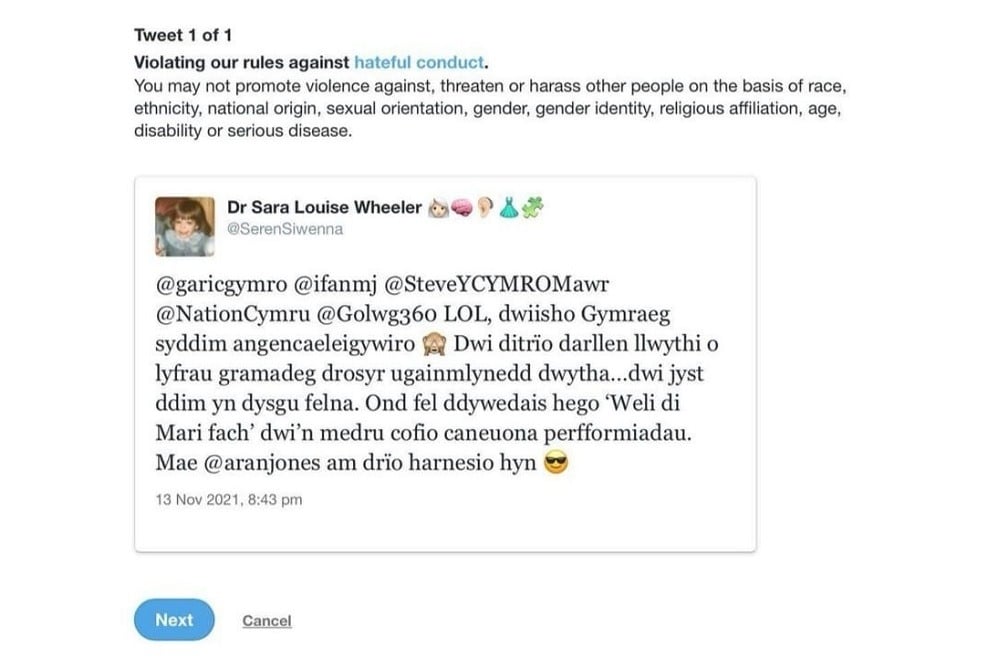

Twitter suspended a Welsh academic for posting a tweet about Welsh grammar in the Welsh language. The platform claimed that the tweet violated its rules against “hateful conduct.” It really didn't.
On November 13, Dr. Sara Louise Wheeler, a guest researcher at Wrexham Glyndwr University, posted a harmless tweet about Welsh grammar in the Welsh language.

“I want Welsh that doesn’t need to be corrected,” she tweeted in Welsh. “I’ve tried reading loads of Welsh grammar books over the last twenty years – but I just don’t learn that way.
…

Become a Member and Keep Reading…
Reclaim your digital freedom. Get the latest on censorship, cancel culture, and surveillance, and learn how to fight back.
Already a supporter? Sign In.